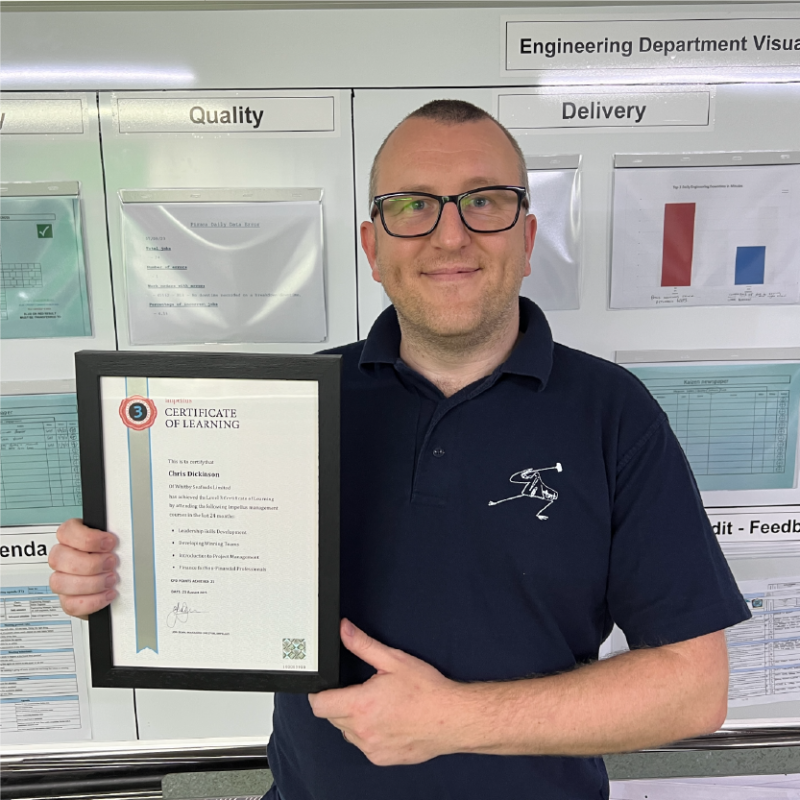As the Government raises the retirement age, one in five workers feels age is hindering their career progression. However, Impellus research reveals older and long-serving managers attending leadership training are more likely to say that the training helps them in their job enormously than other delegates.
There are numerous benefits to giving older and long-standing employees the opportunity to develop their skills, however 20% of UK workers feel that age is the greatest reason they cannot move up the career ladder. The survey by ADP¹ of nearly 10,000 European workers also found that this statistic rises to 46% of over 55-year olds.
From a separate report, published by the CIPD² in April this year, the table below illustrates that participation in education and training for the 55-64 age bracket is far behind that of younger groups. Participation is however much higher in the UK than in the other European countries.

It may be of no great surprise to read these statistics, but nonetheless quite alarming, particularly considering:
- It can be particularly demotivating if an employee feels that achievement of their career goals is blocked by factors beyond their control
- Nowadays workforces are made up of five generations and this will become the norm
- The need for people to work longer, our ageing population and rapid technology changes will necessitate employees updating their skills on an ongoing basis
- Employers are obliged to treat all employees fairly and have a responsibility to provide opportunities for lifelong learning.
Older managers attendance on training courses
The findings from the ADP and CIPD reports tally with statistics of delegates attending Impellus’ open management courses. In the first five months of 2017, delegates who had been in their current role for ten years or more accounted for on average 11.4% of all delegates. This figure has not increased notably since 2014 when it was an average of 10.5% over the same period.
Interestingly, Impellus can also reveal that even though older/long-serving delegates are in the minority on their courses, they have a higher propensity to say that ‘the training helps them in their job enormously’ than all delegates. Between one third and a half of delegates who had been in their role for 10 years or more felt it helped them enormously compared with between a quarter and a third of delegates overall.
It is disappointing that organisations are not investing in their long-standing staff to the same degree as newly-appointed managers (an earlier blog covers this topic).
Employees themselves, do have a responsibility to pursue openings to develop their skills, but there may be more of a reluctance for older workers to seek out training than their younger, newer counterparts, as:
- they are less likely to have experienced training in recent years and may therefore be somewhat fearful of the experience
- they may be unaware of the need to develop their skills if they were promoted a long time ago and have learnt as they have gone along
- their pride could be preventing them from asking for help/support
- they are fearful of change.
Benefits of diverse age and experience levels
It seems that many businesses need to address generational concerns of their staff and seek to improve age diversity. There is no doubt that employees of all ages find it motivational to be given the opportunity to develop professionally, not least because it makes them feel valued by their organisation.
Organisations need to develop training programmes that help the older generation to stay up-to-date with skills, as well as initiatives to support all generations. These initiatives may include encouraging younger employees to work with more experienced colleagues to understand aspects of the business and the customer journey that require knowledge from before the digital era. They may also involve younger, newer colleagues communicating the positive experience and benefits of training.
Reference:
1 ADP is a provider of cloud based Human Capital Management solutions for HR & Payroll. The article appears in June issue of People Management.
2 CIPD Policy Report entitled ‘From ‘inadequate’ to ‘outstanding’: making the UK skills system world class.























